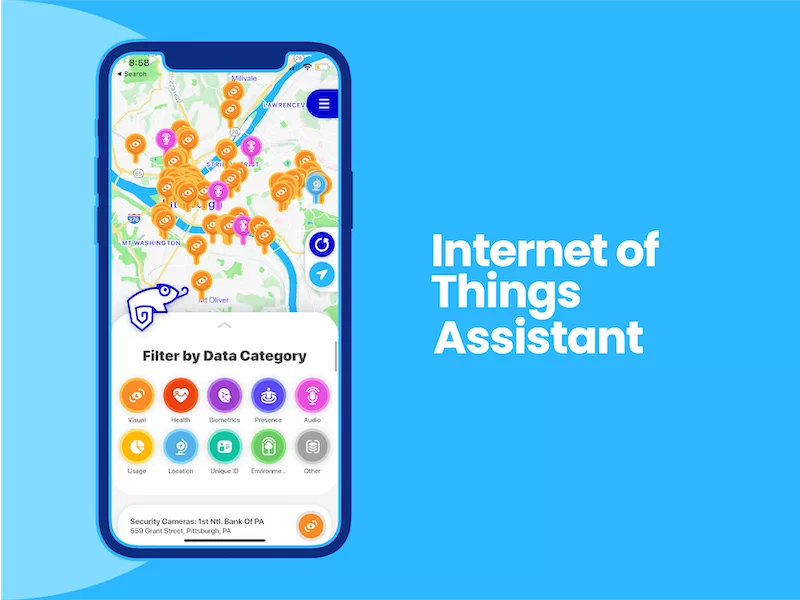Carnegie Mellon’s updated IoT Privacy Assistant app allows users to maintain privacy

Image courtesy of Carnegie Mellon University’s CyLab
After a successful launch earlier this year, Carnegie Mellon researchers introduced the latest version of the IoT Privacy Assistant, an app and digital infrastructure that enables users to discover IoT devices nearby, learn about the data they collect and any controls they might possibly give, such as opting in or out of their data collection and use practices.
The updated version – available in the App Store (iOS) and Google Play (Android) – provides users with an interactive map of IoT devices around them, learn about the data these devices collect, what they do with the collected data, and whether they offer any privacy controls. Further:
- No account required. As soon as users have downloaded the app on their mobile devices, they can begin exploring the map for IoT devices around them, what data they’re collecting and for how long, and how that data may be shared.
- Filter through specific data collection (e.g., video capture, audio recording or location tracking). Users can select which types of data collection they care about and choose among different notification options to decide what types of data collection around them they want to be alerted about and how often.
- The IoT Portal offers a collection of device templates that contributors can use depending on the types of devices they want to publicize (e.g., a Ring doorbell at their home, a Bluetooth location system in their store, etc.). Vendors can also use the system to describe their IoT systems.
“Laws like the CCPA and GDPR call for increased transparency about the types of data being collected about people, how that data is used, and what options people are given. Our app and infrastructure pave the way towards compliance, allowing people to take control of their privacy,” said Norman Sadeh, a CyLab faculty member, computer science professor in the Institute for Software Research (ISR) and the principal investigator of the Personalized Privacy Assistant Project. “
For more information, please visit https://www.cylab.cmu.edu/news/2020/12/03-iotassistant.html
Looking for a reprint of this article?
From high-res PDFs to custom plaques, order your copy today!







